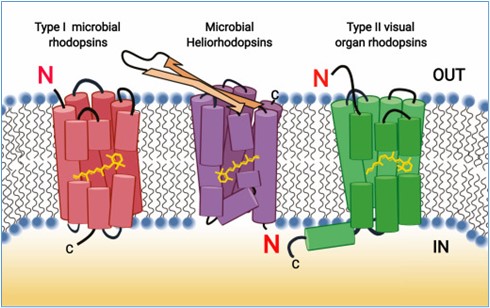PREVIOUS
Microalgae adaptation to warming
March 11 , 2024
677 days
786
0
- The Microalgae, which form the base of the food chain in the ocean and capture carbon dioxide from the atmosphere, appear to rely on a unique strategy to cope with global warming.
- As the climate change reduces the availability of nutrients in the sea, marine microalgae or eukaryotic phytoplankton fire up a protein called rhodopsin.
- It is related to the protein in the human eye responsible for vision in dim light.
- This light-responsive protein is helping the microalgae flourish with the help of sunlight in place of traditional chlorophyll.
- They may absorb as much light as chlorophyll-based photosynthesis in the sea, which also captures light to generate energy and food.

Leave a Reply
Your Comment is awaiting moderation.


